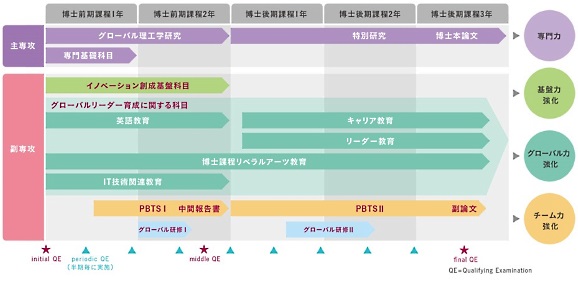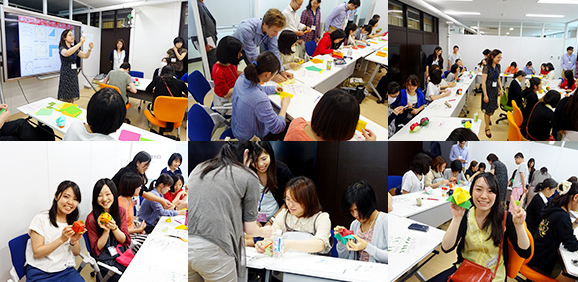一覧に戻る
次世代のグローバルリーダーを育成するためのコースワークである博士課程リベラルアーツ科目から、Essential Ethics for Global Leadersを4月9日より開講します。
この授業は、グローバル理工学副専攻の履修科目になっていますが、博士前期・後期課程に所属する学生はどなたでも履修することができますので、グローバル力の強化を目指している方には受講をお勧めします。なお、講義は英語で行われます。
主題と目標
Key themes:
– Perfection & happiness, right & good (as ends of ethics/moral philosophy)
– Ethics as study and practice
– Old and new ethics
– Contemporary ethical problems
– Exercise of reason
Objectives:
– To understand the facts of morality
– To reflect on life in its moral aspects
– To rethink personal moral convictions
– To strengthen old and/or adopt new ethical principles
学生へのメッセージ
 Welcome to Essential ETHICS!
Welcome to Essential ETHICS!
Most people are sensible about behaviour and attitude. The task of ethics is simply to rectify conduct. Parents, teachers, maybe all of us attempt to teach ethics, yet, ethics is something that can be learnt, rather than taught. In this course we will survey a range of topics related to ethics as an essential driver for general, intellectual and scientific achievement. Together we will discuss ethically questionable behaviour, consumption, research, business, law etc., and learn from a variety of viewpoints.
This course will be conducted in English. The audience is any student concerned with « good » and « right ».
講義概要
| 科目名 |
| Essential Ethics for Global Leaders [19S1014] |
| 単位数 |
| 2.0単位 |
| 担当教員 |
| 山本 ラヴェナー ロクサナ (お茶の水女子大学プロジェクト教育研究院特任講師) |
| 対象 |
博士前期・後期課程
学部生も聴講できます。理系・文系は問いません。 |
| 場所 |
| 人間文化研究科棟408室 |
| 日時 |
火曜5~6限(13:20-14:50)
4月09日、16日、23日
5月07日、14日、21日、28日
6月04日、11日、18日、25日
7月02日、09日、23日、30日
|
| 授業計画 |
Each lecture will begin with a brief introduction on the scheduled topic, followed by discussions in relation to the topic.
- Course 1. An introduction to Ethics
– Concept & facts emphasizing the importance of ethics in our everyday life
– (Discusssion) Is ethics a science or an art? Should we study or practice ethics?
- Course 2. Fundamentals of Ethics
– Branches, tasks and methods
– (Discussion) What should I do? Are we‘free’to do what we think is right?
- Course 3. Main doctriness
– Exploring the core ethical principles
– (Discussion) Humans ought to seek happiness egoistically or universalistically?
- Course 4. Reason and feeling
– Analysing reasonable conduct
– (Discussion) What to do in a situation when telling the truth is wrong?
- Course 5. Pleasure and desire
– Analysing impulses that conflict with reason
– (Discussion) Can the desire to win a game/competition be unethical?
- Course 6. Egoism
– Self-realization as the aim
– (Discussion) Is egoism vice or self-protection?
- Course 7. Intuitionism
– The view that everyday moral decisions are made in an ordinary way, intuitively
– (Discussion) What if everybody did what I do?
- Course 8. Hedonism
– Maximizing pleasure and minimizing pain
– (Discussion) Extremes of increasing pleasure (e.g. drugs) and limit pain (e.g. suicide)
- Course 9. Common sense
– Code imposed on individuals by public opinion or consensus of mankind
– (Discussion) Common sense vs. common pursuits (of health, joy, wealth, social position, power)
- Course 10. Duty and justice
– Right acts; Fulfillment of agreements or expectations
– (Discussion) Can rights and duties conflict (e.g. nomad settlements in protected places, abortion)? Is it just to penalize unintended crime and not reward unintended aid?
- Course 11. Promise and law
– Fulfillment of obligation as understood by promiser and promisee; Obeying the law
– (Discussion) Can a promise to do something immoral be morally binding? Can a contract that holds a person to do something illegal be legally valid?
- Course 12. Benevolence and intellectual virtues
– Cultivate affection, piety, friendship, neighbourliness, citizenship, universal benevolence
– (Discussion) Are there priorities for benevolence?
– Wisdom, will, caution, decision
– (Discussion) How to achieve harmony between our ends and ethics?
- Course 13. The Ethical Seminar
– (Discussions) How to ethically respond to unethical behaviour of others?
- Course 14 and 15: Final Presentations and class discussion
– Presentation of a personal approach to an ethical problem (written or oral)
|
| 時間外学習 |
| Apart from the time students will invest in their final presentation, this course requires no learning time outside the classroom. Students are encouraged to dedicate as little/much time outside the class as they deem necessary to fulfil their personal ethical goals. |
| 教科書・参考文献 |
Try reading:
Plato. (any edition). The Republic – 国家 (対話篇)
Aristotle. 1857. Nicomachean Ethics – ニコマコス倫理学 |
履修登録
履修登録期間: 4月9日(火)~ 4月22日(月)
上記登録期間内に登録ができなかった場合は、学生センター棟1階学務課にご相談ください。
※学部生の聴講については、リーディング大学院推進センターにご連絡ください。
お問合せ
お茶の水女子大学 リーディング大学院推進センター
Tel: 03-5978-5775
E-mail:
 Welcome to Essential ETHICS!
Welcome to Essential ETHICS!




